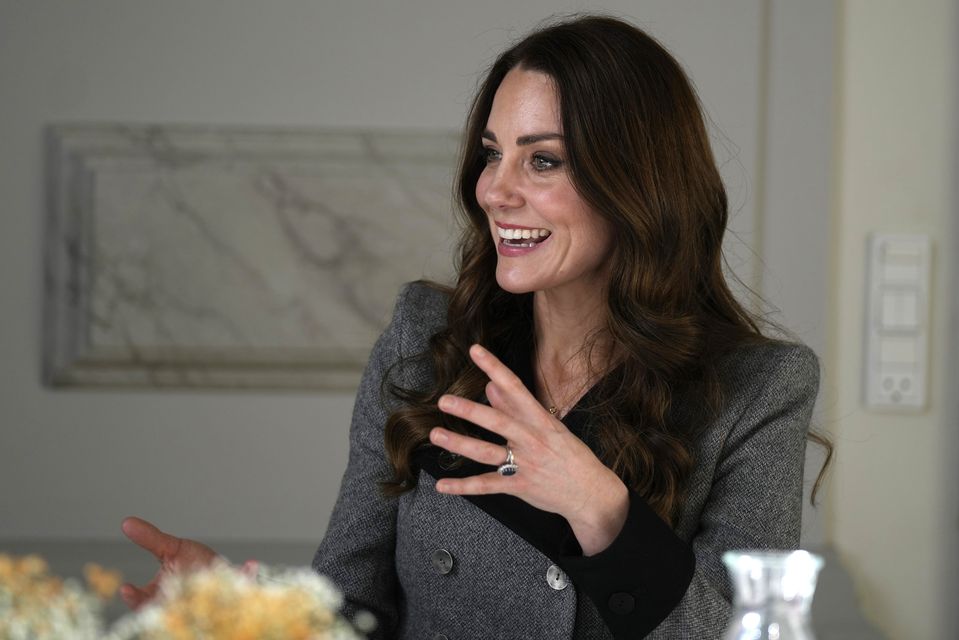The Princess of Wales is said to be “delighted” at plans to expand a programme to promote babies’ wellbeing across the UK.
The Royal Foundation Centre for Early Childhood and the Institute of Health Visiting (iHV) have confirmed the expansion of the trial of a tool used by health visitors within routine checks to eight new areas.
The Alarm Distress Baby Scale (ADBB) model is a system Kate saw in practice during a 2022 visit to Denmark that assesses how babies interact with their environment.
The princess, then the Duchess of Cambridge, speaking during a trip to Copenhagen, Denmark, on a working visit with The Royal Foundation Centre for Early Childhood in 2022 (Alastair Grant/PA)
Under the ADBB model, a baby’s eye contact, facial expressions, vocalisation and activity levels are studied to help health professionals and families better understand the ways they express their feelings, and to support parents with bonding.
It can also be used to recognise early signs of psychological distress, enabling specialist support to be accessed as soon as it is needed.
After Kate saw health visitors in Denmark using the tool, the Centre for Early Childhood then worked with the Institute of Health Visiting (iHV) and Oxford University to test it in the UK.
Health visitors involved in phase one – which took place in South Warwickshire NHS Foundation Trust and Humber Teaching NHS Foundation Trust – said they were able to have more meaningful conversations with parents and carers about the emotional wellbeing of their baby.
They said they were also able to promote positive parent-infant interactions, attachment, and bonding, and to identify those babies and families in need of greater support.
The second phase is funded by a £210,000 grant from the Centre for Early Childhood and will run until March 2026 in eight areas across England, Scotland, Wales and Northern Ireland.
It is understood the Princess of Wales, who has made promoting the early years development of children a major part of her public work, is thrilled by the expansion of the trial.
A spokesperson for the princess added: “The work of the Centre for Early Childhood continues to shine a light on just how important the first five years of life are for any baby and the role we can all play.
“The Princess is delighted to see the expansion of the ADBB trial and looks forward to following it closely.”
Christian Guy, executive director of the Centre for Early Childhood, said: “We know that warm, loving, responsive interactions with those closest to them during the earliest weeks and months of a baby’s life are crucial in promoting positive brain development.
“Health visitors do such a vital job in our communities. I am delighted that we are now able to give more teams across the UK the support they need to help thousands of families to better understand their babies and build nurturing relationships, laying the strongest possible foundations for all that is to come in the years that follow.”
Alison Morton, chief executive of the Institute of Health Visiting, said: “As we know, babies can’t talk, but there is significant evidence that their early experiences influence their future outcomes.
“The expansion of the use of the modified ADBB tool in a wider range of health visiting services will allow us to consider its future implementation and sustainability, and ensure more families get the right support and babies can thrive.”
